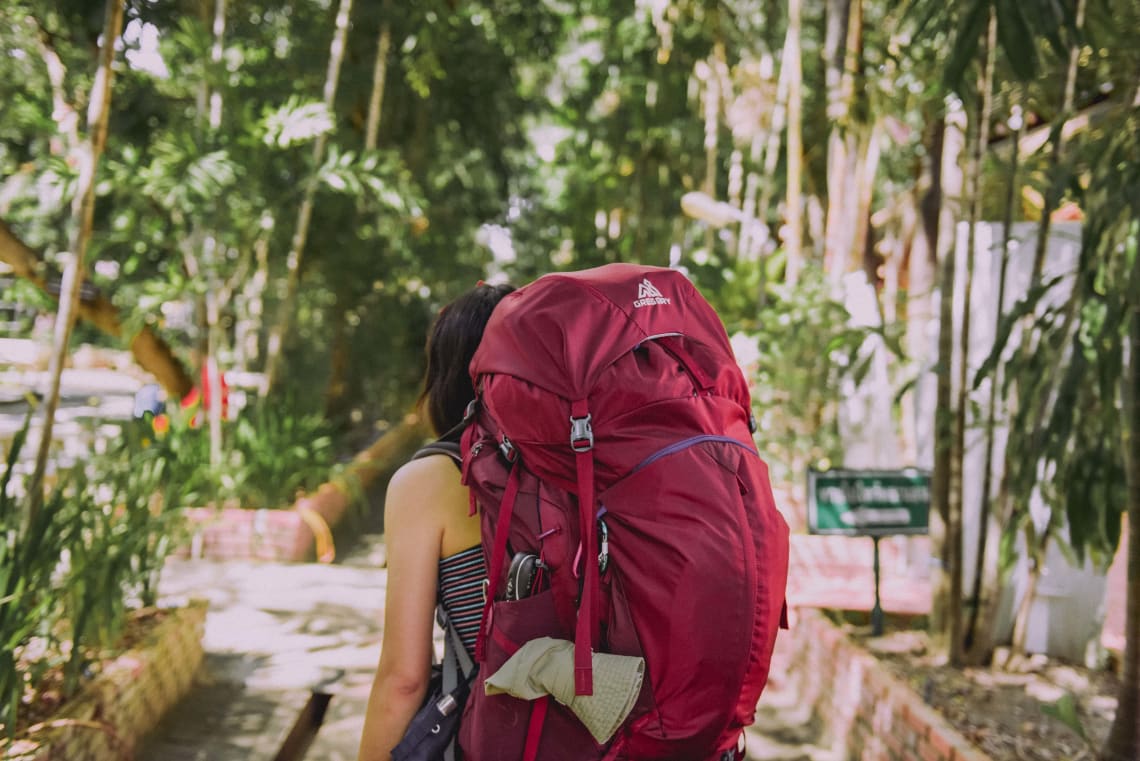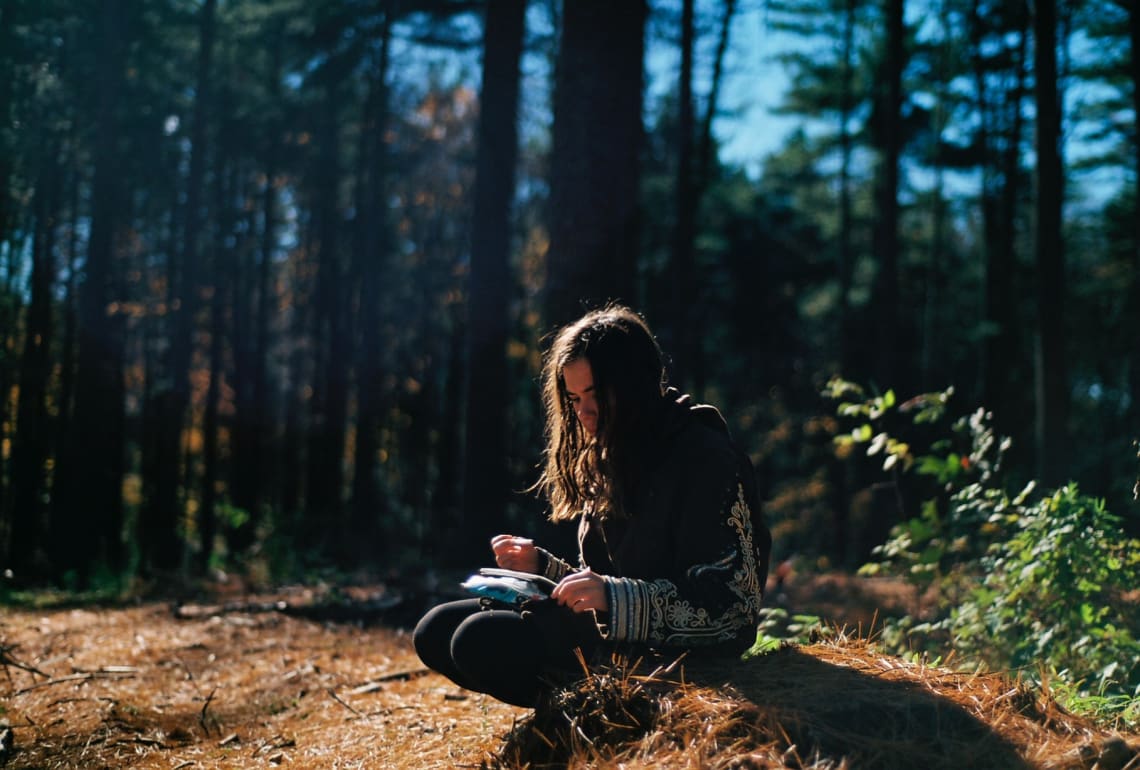10 practical tips for coming home after traveling abroad
9 min readI went home for a two-month period after spending the best part of a year and a half living in other countries. Now, with the ability to look back, I can advise other travelers on some things they should look out for and prepare for when coming home after traveling abroad.
Coming home after traveling abroad is disorienting. As travelers, most of us know how it feels to be confused, lost or alien-like in the places where we find ourselves abroad.
That makes sense when exploring countries where everything from the language to the culture to the mannerisms are completely different. Here’s the thing though: returning home after spending time abroad can come with just as many hiccups.
I would know. In early 2018, I swapped everything I knew in my life in Toronto for a new life as an expat in Colombia and then, later, Ecuador.
Before hopping on the airplane, I put immense planning into this new chapter. (Did I have the clients to start work as a freelancer right away? Did I have a place to live? How many Spanish verbs did I know? Was there enough money in the bank?)
In regards to my return to Canada, well, that was a whole other story…
I went home for a two-month period after spending the best part of a year and a half living in other countries. It was mayhem. It was confusing, emotional, weird… and way too jam-packed busy. I put nowhere near enough planning into that time. I didn’t prepare. Since Canada was my home, I didn’t know I even had to.
Now, with the ability to look back, I can absolutely advise other travelers on some things they should look out for and prepare for when coming home after traveling abroad.
Below, a list of what my former self should have known…

10 tips for adjusting to life at home after traveling
1. Remember why you prioritized travel in the first place
2. Prepare yourself emotionally for the friendships that will have drifted
3. Plan for at least a little financial anxiety
4. Avoid being a know-it-all
5. Don’t spread yourself thin for other people
6. Pre-plan your responses to those awkward, high-pressure questions
7. Get ready for some real reverse culture shock
8. Don’t allow other people’s expectations of themselves cloud your own
9. Have something to look forward to on your calendar
10. Spend time on what you want to do
—
1. Remember why you prioritized travel in the first place
When I came back to Toronto, much about my friends’ lives had changed. I saw them heading towards more traditional lifestyles of those in their late-twenties.
As we all march towards thirty, many of my close friends are in the beginning phases of settling down. I’m not. I think that coming home after spending time abroad makes many travelers question their choices.
In my case, I was able to evaluate where I was at, where my friends were at, and come out of that thought process accepting without a doubt that I preferred the path that I chose.
I write this to say: be aware that in coming home after traveling, others’ changed lifestyles and judgments will probably make you question your own. Prepare yourself for that.
In that period, remind yourself of why you left home territory in the first place. Was it to learn a new language? Meet new friends? Start freelancing? Monetize your passion? Become a digital nomad? Experience new places and cultures? Discover your passion?
In my case, it was all of those things and in those moments of comparing yourself to others (it’s hard not to!) I reminded myself of those concrete reasons why I did what I did. I suggest you do the same.
2. Prepare yourself emotionally for the friendships that will have drifted
I hate that this makes the list, but unfortunately, it does. This is a guide about practical ways to prepare yourself for coming home after travel. Sadly, one of those things is that at least one of your relationships will have taken a hit.
Traveling for a period of time does a great job of cutting people out of your life… or very nearly. When I left, the first person to support me and say that they were going to book a trip to visit was someone who I considered a best friend.
As time went by, we drifted more and more and I suffered. While I expressed my concerns a few times, the gap widened and we drifted to the point where our communication today is casual at best.
When that happens, you have to be able to evaluate ahead of time whether or not to continue these friendships and if so, also decide how much effort you’re prepared to put in.
When coming home, decide who you are going to see, who you will prioritize, etc.
Since returning after being away is confusing enough, prepare yourself emotionally for how to handle seeing those who stopped putting in effort in your absence.
Doing that work beforehand is better than being hit with it upon your arrival on home turf.
3. Plan for at least a little financial anxiety
If you’ve been traveling for a while, chances are you’ve been on a strict budget, volunteering in exchange for accommodation, living off of savings, working as a digital nomad to fund your travels, finding creative ways to make money while traveling, or all of the above.
Even if you’re fully employed, like I am, your salary may not be on par with what it would have been had you just stayed home. (This is true in my case as well…). Regardless, it’s a huge probability that you’ve been off exploring in places where the cost of living isn’t as high as it is at home. (North American travelers, I feel you!).
I think your best bet before you board your plane to go home is to just acknowledge that you might feel uncomfortable about money-related things for the first little while. That happens to the best of us and it’s okay to be anxious about how much you do (or don’t) have in your bank account.
Money worries exist for the majority of travelers. Accept that there may be some financial anxiety, accept that it’s par for the course and plan on where you can earn and save.
Listen, by this point you’ve probably learned that traveling comes with its downsides. This is one of them but it’s still worth it in the end.
4. Avoid being a know-it-all
You might come home excited about everything that your time abroad has taught you. Those lessons are extremely valuable and will hopefully stay with you in the weeks and years to come.
That said, keep in mind that sharing your experiences could come across and flaunting your knowledge or being a bit of a know-it-all.
Don’t, for example, correct friends on their language skills. Don’t dismiss food at home as not being “authentic” just because you’ve had experiences with the real deal.
There’s a line between sharing your experiences and shoving it in others’ faces. No one likes the latter.
5. Don’t spread yourself thin for other people
This tip is one of the best ones I’ve got and the most practical.
In fact, this tip not to spread yourself thin for others is something that many expats warned me about before I headed home to Toronto for the summer. While I took that into account figuring out which friends I’d prioritize and when, I didn’t do it enough.
I still found myself overwhelmed and traveling around the city like a chicken with its head cut off trying to make time for everyone.
Don’t do it!
Allow yourself time to bounce back from your travels.
Take lazy days. Spend time with family. Sleep in! Take your self-care practices up a notch!
Also, in making these plans to see the people who you missed so much, make sure the efforts are even. If you’re not getting enthusiasm from certain individuals, let those lunch plans wait until later.
If some aren’t willing to put in the effort to come to you, let those plans slide. When I came home, there were so many people who I couldn’t wait to see. The best friends made plans early and checked the dates of my return.
That let me know that time was important. For others, it seemed more an afterthought. Once I even wondered if a meet up felt obligatory on my friends’ end. It didn’t feel good.
Another friend was really only available for coffee if I met her at a location convenient for her. No thanks to both of those… In retrospect, I kind of wish I had just canceled both because I was already over-scheduled and spread thin.

6. Pre-plan your responses to those awkward, high-pressure questions
After travel, everyone has a list of questions that they don’t really want to answer. You know the ones: “What are you doing now?” “How’s the job hunt going?” “What’s next?” “Have you figured out x, yet?”
Returning home after travel can mean that it’s time to jump into the next chapter.
That could mean finding work, settling in a new place to live, looking for a relationship, job hunting, or maybe even finding new ways to travel more intentionally and hitting the road anew… the list goes on.
It’s not surprising that many of these things come with a lot of pressure and so being bombarded with questions about these topics can be stressful to say the least.
That’s why it’s best to decide how to answer them in advance to avoid the social awkwardness and fumbling to explain yourself.
7. Get ready for some real reverse culture shock
This one can be pretty funny but I swear to you: reverse culture shock is real and get ready.
Get ready for not understanding things you used to take for granted.
Get ready for not knowing what your friends are talking about.
Get ready for your city to feel bigger… or smaller.
Get ready for prices to have gone up and for pop culture moments to have slipped your radar and for the latest trend to make no sense at all. Just saying.
8. Don’t allow other people’s expectations of themselves cloud your own
Everyone has their own unique set of goals and challenges.
Many of my friends are more focused on a serious relationship for example. Some want to buy houses, some are in school, many aren’t really interested in travel, some are figuring out a new career path.
All of those things are so, so completely different. Let me just say it: it’s impossible to do it all so pick the thing you want to do and don’t let others’ personal notions of achievement get in the way of that.
You do you.
9. Have something to look forward to on your calendar
Returning home after travel can be a bit depressing.
While there are surely things you missed and comforts from home you’ve been desperate for, home can seem uninteresting compared to all the new things you were off discovering for so long.
For this reason, I say get some things on the calendar that you’ll look forward to. You need to have excitement in your life especially during a transitional stage that can be emotional. You’ll be surprised by how much this can help you combat those post-travel blues!
10. Spend time on what you want to do
During my busy, whirlwind summer I had myself spread. Way. too. thin.
It was towards the end of the trip that I went camping in a beautiful provincial park far from the city and its bustling, stressful energy. I had plans in Toronto that I rescheduled and I took more time to enjoy my lakeside runs with a beer on the rocky beach afterwards.
There, water was a Caribbean blue, the air was fresh and I didn’t bother connecting to WiFi. I figured everything could wait for just a bit.
Then it occurred to me that this was the kind of decision I should have been making all along.



